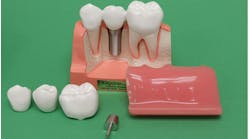Dentistry is going through a metamorphosis that includes more doctors than ever before being offered buyouts to sell their practices. Many of them have a great deal of confusion about this decision as it can be challenging to understand valuations, buyout offers, letters of intent, and contracts containing a lot of legalese.
Further, and perhaps more important, many of these offers are being received by dentists who are not looking to sell their practice, leaving them unprepared to make a decision that could result in a massive career and life change. Here are some factors to consider should you find yourself in the position of evaluating a transition.
Set aside your ego
When you’re first approached with an opportunity to sell a practice at a reasonable or excellent price, ego tends to kick in. You’re proud of the fact that someone recognizes the value you have built in your practice. And you should be. Evaluating whether to sell your practice and achieve the maximum value possible will best occur when you don’t rely on emotion or ego but instead focus on the facts and numbers.
More by Dr. Roger Levin
Never underestimate your hygienist
Trends and challenges that will reshape the dental profession—and what you should do now
Put fear away
Some dentists experience FOMO (fear of missing out). They’re afraid that if they do not jump at the first sale opportunity placed in front of them they will miss a big payout later. They keep hearing how DSOs are expanding and taking over dentistry. There’s fear of being left out financially and not being able to compete successfully. In reality, there is no evidence that private practices are being harmed by the current expansion pace of DSOs and large groups. Both practice models are viable. Don’t let fear or rumors coerce you into making a decision that you were not seeking, may not like, or that could completely change the trajectory of your career.
Engage an expert to determine if you’re financially independent
Deciding whether to sell a practice is different if you’re financially independent than if you’re not. Money gives you more choices and options, so determine your true personal financial situation before you start evaluating an offer. You will view the entire process differently if the outcome won’t have a severe negative impact on your finances.
Evaluate the real offer
Many dentists are getting preliminary verbal offers that sound too good to be true, and many of them are. Request a written letter of intent that formally states the offer before you spend a lot of time and money evaluating whether you want to sell. How much will you receive and on what schedule? How long will you be required to stay and work as an employee? Can you be terminated without cause? These and many other questions should be spelled out before you start your formal evaluation. If you like what you see, then the single most important next step is to engage a knowledgeable attorney who will protect you.
Ask yourself (and perhaps those closest to you) if you’re ready to become an employee
If you’re in your latter years, this might be a great opportunity to sell the practice, get your asset value out of the practice, let others manage the practice, and have an easy transition into retirement or the next chapter of your life. If you’re younger and not yet financially independent, you’ll be making a different type of career decision. When you sell, you will no longer be an owner, and changes are possible and even likely. You will be working for someone, maybe for the first time in your life. Make sure you’re comfortable with this reality.
Get several references
This is a major decision. I’ve seen excellent offers backed up with sincere contracts, and I’ve seen the exact opposite. I receive too many phone calls from dentists asking if they should sell their practice to a DSO or large group. When they reach out most of them have received only some type of verbal informal offer, no letter of intent, no contract, and not a lot of information, especially about the fine print.
I cannot think of a single time that I received a call like this where the dentist had talked to other doctors in the organization in order to understand how life will be after a sale. It’s important to ask for a list of doctors in the organization, which is typically public information, and then randomly pick ones to call to get a sense of their experiences and determine how you might fit into that organization. At this point it’s no different than any employee seeking a job in any company. If you take the wrong job you might suffer from disappointment, unhappiness, and even lower income. Take the time to really research this major life decision.
So, should you sell your practice? Maybe. There are several reputable organizations out there that will be interested in purchasing a good practice and many private dentists who are also interested in purchasing a practice. When you receive an offer, stop, take a breath, and think through my recommendations. With the right preparation and expertise guiding you, you will be well-positioned to decide what you want for the rest of your career.
Editor's note: This article appeared in the September 2022 print edition of Dental Economics magazine. Dentists in North America are eligible for a complimentary print subscription. Sign up here.






